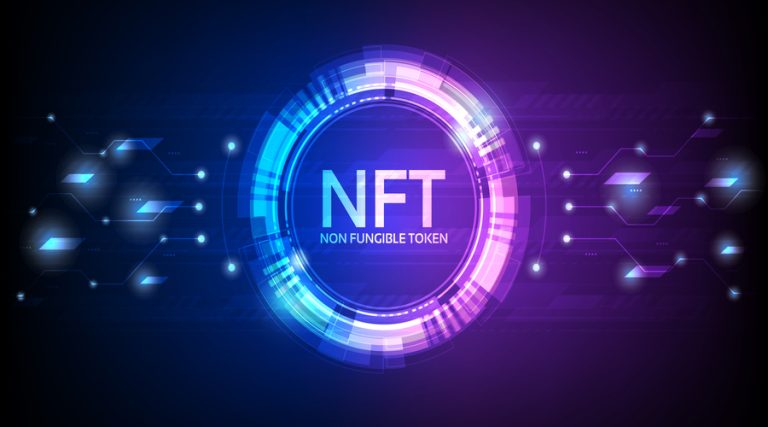
DeFi (Decentralized Finance) has revolutionized the traditional financial landscape by providing open, permissionless, and decentralized financial services to users worldwide. One crucial aspect of DeFi is the use of decentralized identity (DID), which aims to empower individuals with ownership and control over their personal information. However, as DeFi continues to evolve, it is essential to understand and address the privacy and security considerations associated with this technology.
Privacy Considerations in DeFi
- Data Encryption and Anonymity
In the DeFi ecosystem, privacy is of utmost importance. By leveraging blockchain technology and cryptographic protocols, DeFi platforms strive to protect user data through encryption and pseudonymity. Transactions are recorded on the blockchain, ensuring transparency, while the actual identities behind the transactions remain pseudonymous. This balance allows users to participate in DeFi without revealing their real-world identities.
- Role of Smart Contracts
Smart contracts play a vital role in DeFi protocols. These self-executing contracts automatically facilitate transactions based on predetermined conditions. Privacy-conscious DeFi platforms incorporate privacy-focused smart contracts, which enable the execution of transactions while preserving the confidentiality of the involved parties. These contracts utilize techniques such as zero-knowledge proofs to verify transaction validity without disclosing sensitive information.
- User Control over Personal Information
In traditional finance, individuals often surrender their personal information to centralized institutions. However, in DeFi, individuals have greater control over their personal data. Decentralized identity solutions, such as self-sovereign identity (SSI), enable users to manage and share their information securely. By using DID, individuals can selectively disclose specific details without revealing their entire identity, enhancing privacy while still complying with regulatory requirements.
- Privacy-Preserving DeFi Protocols
Privacy-preserving DeFi protocols are gaining traction to address the privacy concerns of users. These protocols incorporate advanced cryptographic techniques such as zk-SNARKs (zero-knowledge succinct non-interactive arguments of knowledge) and zk-STARKs (zero-knowledge scalable transparent arguments of knowledge) to enable private transactions and data sharing. By leveraging these protocols, users can engage in DeFi activities without compromising their privacy.
- Decentralized Identity and Self-Sovereign Identity (SSI)
Decentralized identity solutions, including Self-Sovereign Identity (SSI), are playing a vital role in safeguarding user privacy in DeFi. SSI enables individuals to have ownership and control over their digital identities, reducing reliance on centralized authorities for identity verification. With SSI, users can selectively share identity attributes and maintain control over their personal data, enhancing privacy and mitigating the risk of identity theft.
- Data Minimization and Consent
Data minimization and consent are essential privacy principles that DeFi platforms should adhere to. Collecting only the necessary user data and obtaining explicit consent for its usage help protect user privacy. DeFi projects should implement privacy-focused data management practices, ensuring that user data is processed and stored securely, and that users have granular control over the data they share.
Security Considerations in DeFi
Smart Contract Audits
Smart contracts, although powerful, can be vulnerable to security breaches. To ensure the safety of users’ funds, DeFi projects undergo rigorous smart contract audits. These audits involve expert security researchers reviewing the codebase to identify vulnerabilities and suggest improvements. By conducting thorough audits, DeFi platforms can mitigate the risk of potential exploits and enhance the overall security of their systems.
Vulnerability Management
DeFi projects must maintain a robust vulnerability management process. Continuous monitoring and prompt patching of identified vulnerabilities are crucial to prevent potential attacks. Additionally, projects often incentivize security researchers to report vulnerabilities through bug bounty programs, fostering a collaborative approach towards identifying and addressing security issues.
Protecting Against Hacks and Fraud
While DeFi provides numerous opportunities, it also attracts malicious actors seeking to exploit vulnerabilities. DeFi platforms implement various security measures to protect against hacks and fraud, such as multi-factor authentication, withdrawal limits, and time-delayed transactions. Additionally, the use of decentralized exchanges (DEXs) mitigates the risk of centralized exchange hacks and ensures that users have full control over their funds.
Code Audits and Formal Verification
Conducting comprehensive code audits and employing formal verification techniques are critical steps in ensuring the security of DeFi protocols. Code audits involve independent security experts thoroughly reviewing the smart contracts and identifying vulnerabilities. Formal verification involves using mathematical proofs to verify the correctness and security of the protocol’s code. These rigorous processes help identify and address potential security weaknesses before the protocols are deployed.
Insurance and Risk Mitigation
DeFi platforms are increasingly exploring insurance options to mitigate risks and protect users’ funds. Insurance protocols and decentralized insurance providers offer coverage against smart contract vulnerabilities, hacks, and other unforeseen events. By providing insurance options, DeFi platforms enhance user confidence and provide a safety net in the event of a security breach or loss of funds.
Community-Led Security Practices
The DeFi community plays a crucial role in promoting security practices. Peer reviews, bug bounties, and responsible disclosure programs encourage community members and security researchers to actively contribute to identifying vulnerabilities and improving the security of DeFi protocols. By fostering a collaborative and vigilant community, the overall security posture of the ecosystem can be significantly enhanced.
Balancing Privacy and Security

Transparency vs. Privacy
Maintaining transparency is crucial for building trust within the DeFi ecosystem. Transparency allows users to verify transactions, audit smart contracts, and ensure the overall integrity of the system. However, privacy must also be upheld to protect sensitive user data. Striking the right balance between transparency and privacy is an ongoing challenge in DeFi development.
Privacy-Enhancing Technologies in DeFi
DeFi projects are actively exploring and implementing privacy-enhancing technologies to protect user information. Techniques such as mixers, decentralized identity solutions, and off-chain transactions are employed to enhance privacy without compromising security. These technologies enable users to have control over their personal data while participating in a decentralized financial system.
User Education and Best Practices
Ensuring privacy and security in DeFi requires active user participation. Educating users about potential risks, best practices, and security measures is essential. DeFi platforms should provide educational resources, tutorials, and guides to help users navigate the intricacies of privacy and security. By empowering users with knowledge, they can make informed decisions and protect their assets effectively.
Regulatory Landscape and Compliance
Regulatory Challenges for DeFi
DeFi operates in a rapidly evolving regulatory environment. Regulatory challenges arise due to the unique decentralized nature of these platforms. Regulators are grappling with defining appropriate frameworks to oversee DeFi activities while fostering innovation and safeguarding consumer interests. Balancing compliance with the core principles of DeFi remains a significant challenge for both projects and regulators.
KYC (Know Your Customer) Requirements
Know Your Customer (KYC) requirements are standard in traditional finance to prevent money laundering and fraud. However, implementing KYC in DeFi presents complexities due to the pseudonymous nature of transactions. Some DeFi projects are exploring decentralized KYC solutions that allow users to maintain control over their personal data while complying with regulatory obligations.
DeFi Projects Embracing Compliance
To address regulatory concerns, certain DeFi projects are voluntarily adopting compliance measures. They aim to demonstrate their commitment to aligning with regulatory frameworks without compromising the decentralized nature of the ecosystem. These projects collaborate with legal experts and compliance teams to navigate the regulatory landscape while continuing to innovate in the DeFi space.
The Future of DeFi and Decentralized Identity
Integration with Traditional Finance
The integration of DeFi with traditional finance holds immense potential for mainstream adoption. Collaboration between DeFi platforms and traditional financial institutions can bring liquidity, stability, and a wider range of financial services to the decentralized ecosystem. This integration will bridge the gap between centralized and decentralized finance, benefiting users and expanding the reach of DeFi globally.
Improving User Experience
Enhancing the user experience is vital for the widespread adoption of DeFi. User-friendly interfaces, simplified processes, and intuitive platforms will attract a broader user base beyond early technology adopters. DeFi projects are investing in user experience research and design to create seamless and accessible financial experiences that rival traditional banking services.
Potential Challenges and Solutions
As DeFi and decentralized identity continue to evolve, challenges may arise. Scalability issues, interoperability between different DeFi protocols, and regulatory uncertainties are some of the challenges that need to be addressed. The DeFi community is actively working on innovative solutions such as layer-2 scaling solutions, cross-chain interoperability protocols, and engaging in constructive dialogue with regulators to overcome these obstacles.
Conclusion
DeFi and decentralized identity offer exciting possibilities for reshaping the financial landscape. Privacy and security considerations are of paramount importance to maintain user trust and protect their assets. By leveraging advanced cryptographic techniques, implementing thorough security practices, and embracing regulatory compliance, DeFi platforms can strike a balance between privacy, security, and transparency.
As the DeFi ecosystem continues to evolve, it is crucial for users, developers, and regulators to collaborate and navigate the challenges together. By addressing privacy and security concerns head-on, DeFi can reach its full potential as a groundbreaking and inclusive financial system.
DeFi and decentralized identity bring forth a paradigm shift in the financial landscape. By prioritizing privacy and security, leveraging advanced technologies, and embracing regulatory compliance, DeFi offers individuals greater control over their financial lives. As the ecosystem evolves, collaboration and innovation will pave the way for a more inclusive and secure financial future.
I have been writing about cryptocurrencies for over two years and I’m widely considered one of the most knowledgeable and respected authors in the space. I have a deep understanding of the underlying technology and market dynamics, and my insights have helped countless investors make informed decisions about their portfolios. I’m a speaker and commentator, and my work has been featured in major publications such as CoinDesk, Forbes, and The Wall Street Journal. I also run a popular cryptocurrency trading signals service that has helped thousands of people make money in the volatile but potentially lucrative world of digital assets.


